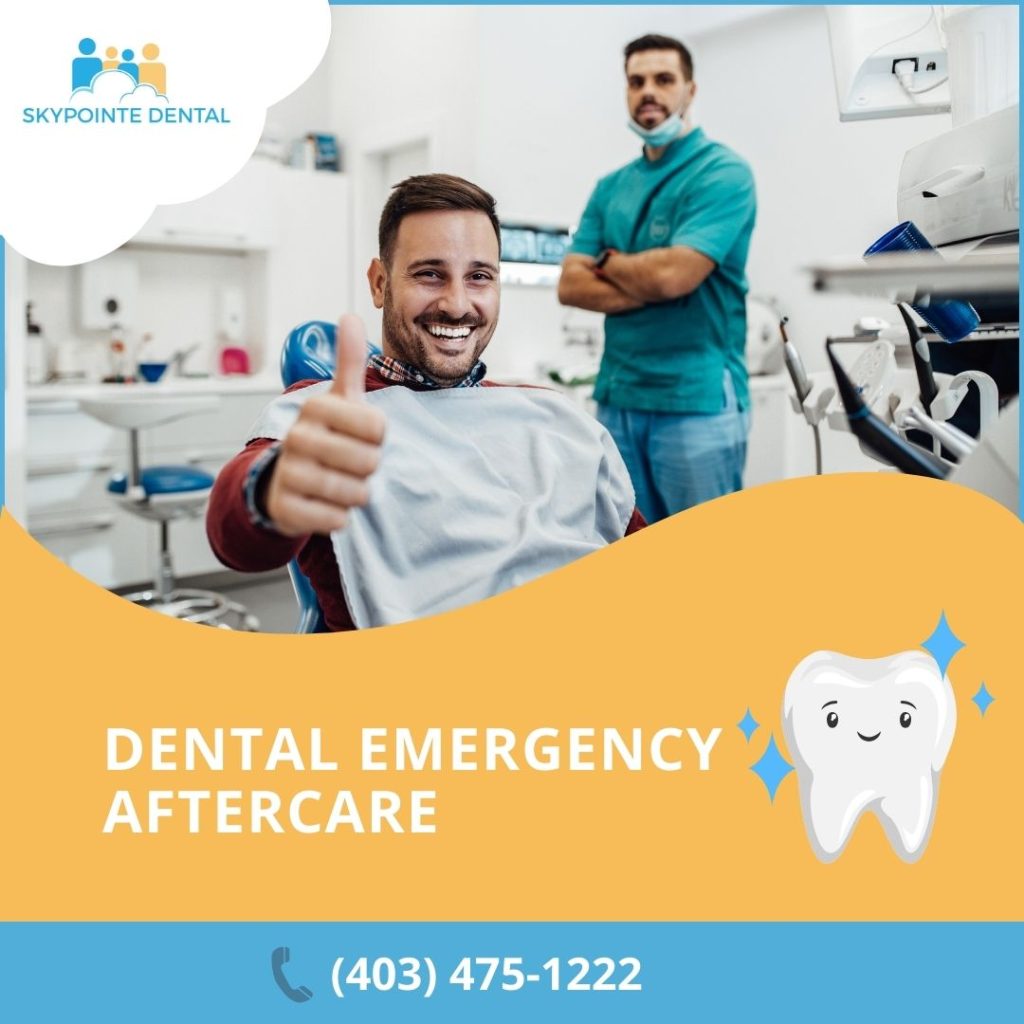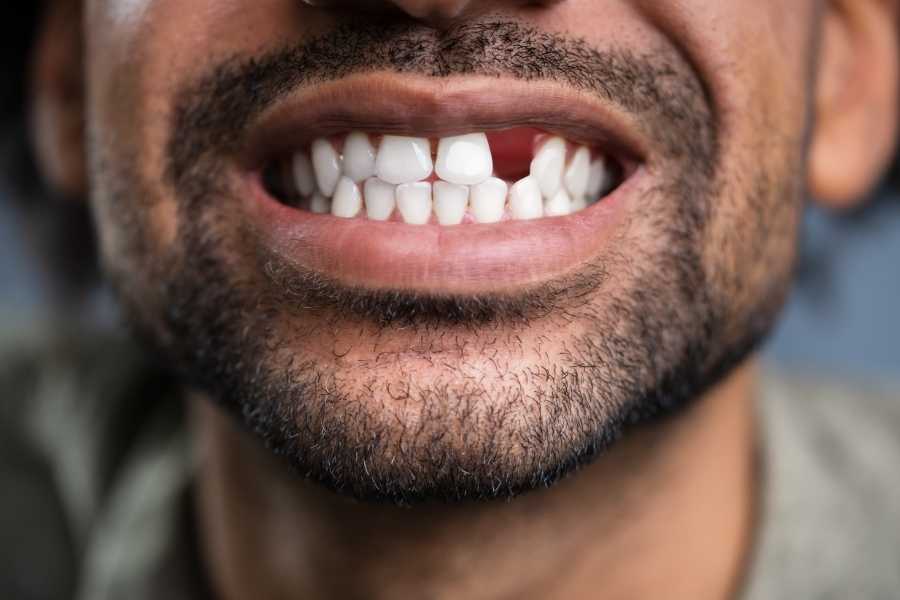Dental emergencies can strike at the worst possible time — not just in terms of pain, but also financially. A sudden toothache, broken tooth, or infection can leave you panicked, especially if you’re unsure whether you can afford to get help. At Skypointe Dental, we understand that cost is a real concern for many families in Calgary NE. That’s why we’re here to offer not just emergency dental care — but real support, options, and understanding when you need it most.
If you’re dealing with intense pain, swelling, or trauma to your teeth or gums, it’s essential to seek care right away. Ignoring a dental emergency can lead to bigger health problems, more expensive procedures later, and prolonged discomfort that affects your daily life.
But what if you’re worried about the cost?
You're not alone. Many people in our community hesitate to call a dentist because they’re unsure whether they can afford it. At Skypointe Dental, we believe that no one should suffer in silence due to financial stress. Our team is committed to finding solutions — not turning people away.
At Skypointe Dental, we make it easier for you to access urgent dental care without added financial pressure. Here’s how we help:
Even if you don’t have insurance, we’ll do our best to make care accessible. Our goal is to remove barriers — not create them.
Calgary NE is one of the most vibrant and diverse areas in the city — and we’re proud to be part of it. From new immigrants to long-time residents, seniors to young families, we’ve helped patients from all walks of life get through dental emergencies with dignity and compassion.
We understand that every patient has a different story. That’s why we take the time to listen and support you, not just treat the problem. Whether you speak English, Punjabi, Tagalog, Arabic, or another language, our multilingual team is here to make you feel at home. We're not just a dental office — we're part of the community.
Our clinic is family-friendly, senior-friendly, and always open to walk-ins when possible. We’re here for everyone.
If you’re in pain or something doesn’t feel right, give us a call. Our experienced team will ask you a few quick questions to understand your situation and help you decide if you need to come in right away. For serious issues like swelling, bleeding, or trauma, we’ll do our best to provide same-day care.
And if you’re worried about the cost? Tell us. We’ll talk you through your options, including payment flexibility or possible insurance coverage.
One of our recent patients shared how they didn’t know where to turn after breaking a tooth — uninsured and unsure what to do. We were able to treat the issue the same day and arrange a payment plan that worked for them. That’s the kind of care we believe in.
We get it — times are tough. Between rising costs and tight budgets, it’s easy to put off dental care. But in a true dental emergency, waiting can do more harm than good.
At Skypointe Dental, we’re not just fixing teeth — we’re here to help you feel safe, supported, and taken care of. Our mission is to serve our community with compassion and skill, no matter your background or circumstances.
Whether you're experiencing a sudden toothache, a cracked tooth, or signs of an infection, please don’t wait. Let us help.
If you’re facing a dental emergency in Calgary NE, call Skypointe Dental today. We’ll guide you through the next steps, help you explore your options, and provide the care you need — without judgment and without delay.
Call us at (403) 475-1222
Your health matters — and so does your peace of mind. Let us take care of both.
When you experience a dental emergency, getting immediate treatment is the first critical step. However, the care you give your mouth after the treatment can be just as important for your recovery and long-term oral health.
At Skypointe Dental in Calgary NE, we understand the importance of proper aftercare following an emergency dental procedure. This guide will help you navigate the crucial steps to ensure a smooth and speedy recovery.
Each type of dental emergency has specific aftercare instructions to follow. Here's what you need to know for some of the most common scenarios:
1. Tooth Extraction: After a tooth extraction, it's normal to experience some swelling and discomfort. Here’s how to manage it:
2. Root Canal Treatment: Root canals can save your tooth, but proper aftercare is essential to ensure healing:
3. Dental Trauma (e.g., Chipped or Knocked-Out Teeth): If you've suffered dental trauma, here's how to protect the area and promote healing:
4. Treatment of Infections: Dental infections can be serious, and following your dentist's instructions is key:
Following these general guidelines will help ensure your recovery is as smooth as possible:
Do:
Don’t:

It's important to monitor your recovery and know when to seek additional help. Contact Skypointe Dental immediately if you experience any of the following:
Proper aftercare is essential for a successful recovery following a dental emergency. By following the guidelines outlined in this article, you can minimize discomfort, prevent complications, and ensure your mouth heals properly.
At Skypointe Dental in Calgary NE, we are here to support you every step of the way. If you have any concerns or questions about your recovery, don’t hesitate to contact us.
Ready for a Consultation? If you've experienced a dental emergency or need advice on aftercare, call Skypointe Dental in Calgary NE today to schedule a follow-up appointment.
Your health and comfort are our top priorities, and we’re here to help you achieve a full recovery.
If a tooth is broken or cracked, see an emergency dentist immediately (within 1 hour of injury). Teeth re-implanted within one hour of the accident frequently reattach to their teeth sockets.
Dealing with a broken tooth? Teeth that are chipped, cracked or broken can often be restored to a good appearance and function with a filling. Depending on the severity of trauma to the tooth pulp and nerves, root treatments or crowning may be required.
Surrounding teeth may also be affected, requiring a thorough exam of the whole mouth. Extraction occurs in treating more extreme cases, like split teeth. Immediate treatment by an emergency dentist is of utmost importance in successful re-implantation when a tooth has been knocked out or dislodged.
There are many situations that can be considered a dental emergency. First of all, if you’re experiencing any kind of tooth pain, this is not to be taken lightly and your body is clearly calling for your attention. These early signals should be listened to carefully before your pain intensifies into something worse.
On the flip side, life has a funny way of throwing us curveballs that can cause totally random, unexpected and dangerous dental emergencies. The following list reflects dental emergencies recognized by the Canadian Dental Association.CALL NOW

Pain in or around a tooth can be indicative of many dental complications such as:
And many other potentially dangerous causes. Left untreated, all of the above can induce excruciating pain that can be simply unbearable and needs to be addressed ASAP for the sake of your health and wellbeing.
To tame the pain, we suggest taking an over-the-counter pain medicine like Advil and applying an ice pack to the area. Avoid placing any heat on the area. This can only make things worse for you.
This is widely considered the most common and most fixable of dental emergencies. Depending on the extent of damage, you may need either:
Whether you’re an athlete, had a freak accident fall walking your dog, tripped going up or down the stairs, a tooth can be knocked right out of its socket from a rough blow to the face.
If this happens to an adult tooth, act FAST. You can:
Have you ever dived into the shallow part of a pool by accident? That is the kind of scenario where something like this could happen. If bleeding occurs, compress a clean cloth on top of the source of the blood and use ice to help minimize the swelling. Call your emergency dentist right away.
We’ve all had the shock of discovering a giant piece of lettuce or some kind of food taking up real estate in our smile for a whole afternoon and for the world to see. Sometimes, this can be far more serious, stressful and painful.
If you have something wedged too tightly in between or in one of your teeth, it needs to be dealt with. Do NOT try to scratch or poke it out with anything sharp and invasive. This could cause even more damage to your teeth and gums.
Teeth grinding, eating really hard foods or a total fluke can lead to a filling falling out. Make sure to get this taken care of right away as an infection can develop. The CDA suggests putting sugarless gum in the space where the filling was to protect your tooth on the way to your emergency appointment.

Toothache symptoms may include:
In some of these cases, a toothache is a dental emergency. A dental infection can become dangerous if left untreated due to bacteria from the infection spread to other parts of the face, the skull, and eventually the bloodstream.
If your pain lasts for 1-2 days, causes severe pain, or is accompanied by an earache, fever, or pain when opening your mouth wide, see us as soon as possible.
Causes of toothaches come from a variety of factors, including cracked or broken teeth, cavities, gum disease, exposed roots, sinus problems and jaw joint disease. The most plausible reasons are neglect of the teeth, bad eating, and drinking habits.
No matter the cause, we hold no judgment. We will be prompt in helping you feel comfortable again and getting your oral health back on track.
Some teeth chips and cracks might only need fillings function normally again. More serious teeth injuries, like fractures and splitting, may need root canals.
Teeth that are cracked all the way to the root may need both a root canal and a crown to restore function.
When a tooth breaks, whether it’s a natural tooth, a dental implant or on dentures, people will often try to fix the problem on their own. Especially if they’re not experiencing any pain.
One of the most common products used to try and fix a broken tooth (or re-cement a crown that’s come off) is superglue. Never use superglue in a dental emergency because:
It can cause more damage
Superglue is not made to adhere to living tissues whereas dental cement is. Placing glue on a tooth will basically suffocate it, cutting off nerve, blood, and nutrient supply to the tooth. This can cause the nerve will die, requiring root canal treatment or extraction.
It’s not a medical-grade material
Non-medical grade materials aren’t sterile, which means you can introduce bacteria into the tooth. The bacteria will attack the tooth and the nerve, leading to a dental infection – another issue that can lead to either root canal treatment or an extraction.
Always contact your emergency dentist for support and guidance on how to properly help fix and heal damaged teeth.
As with all infections, an oral infection should be treated as quickly as possible to reduce the risk of complications. Salt water mouth rinses can ease the pain while waiting to see the dentist.
We will pinpoint the cause of the infection and treat accordingly, bringing back desired comfort and health.
To help prevent infections from occurring in your mouth, we recommend regular twice-a-year visits for up-to-date exams, dental cleanings, and x-rays. A good oral hygiene habit is the first primary and essential step in preventing infections.
When children are taught from early on to create these habits, it helps them keep healthy mouths and teeth.
We understand that dental and oral health affect a person’s overall wellbeing. As an emergency dental clinic, we ensure that our patients are comfortable and calm. With multiple sedation options available, we can ease the pain and traumatic experience while fixing the tooth.
SkyPointe Dental | Calgary NE | Dentist | Dental Clinic | Dental Office | Dental Practice
ADDRESS
6004 Country Hills Blvd NE, #1510, Calgary, AB T3N 1T8
PHONE
(403) 475-1222
HOURS
Tue: 12pm - 8pm | Wed: 10am - 7pm | Thu: 10am – 6pm | Fri: 9am – 5pm | Sat: 9am - 5pm | Sun, Mon & Holidays: Closed
© 2023 SkyPointe Dental - Calgary NE Dentists - All Rights Reserved